Realizing Children’s Rights in Grenada
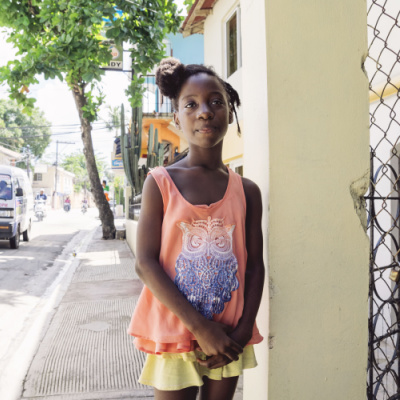
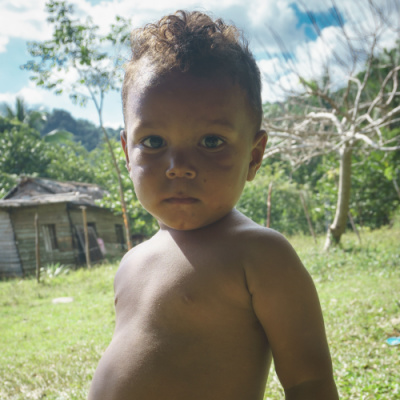
While the Island of Spice boasts endless nutmeg plantations, colorful Georgian-style houses, and turquoise beaches, its children population lead their lives with a severe curtailment of their rights. The government ratified the Convention on the Rights of the Child in 1990, successfully realizing children’s right to health and education. The small Caribbean Island might be a tourist paradise, but it is also a place where, more oftentimes than not, children’s rights to non-discrimination, non-violence, and protection are severely curtailed.

Children’s Rights Index: 7,61 / 10
Orange level: Noticeable problems
Population: 113,015
Pop. ages 0-14: 23.76 %
Life expectancy: 72 years
Under-5 mortality rate: 16.35 ‰
Grenada at a glance
Grenada is a 34 km long and 19 km wide island that lies in the Caribbean Sea, north of Venezuela. Christopher Columbus sighted the country in the XV century, during his third voyage to the Americas. It was ruled by American Indians before the French bought the island. In the following years, Grenada was exchanged between the French and British, until the Commonwealth took charge in the XIX century. Similarly to other Caribbean countries, the authorities brought slaves from Africa to work on the plantations. Today, Grenada is described as a “self-governing state in association with the United Kingdom” (Britter V.B. E., 2022).
In 1974, the country proclaimed independence from British Empire that occupied seven other colonies in near proximity, better known as the West Indies Associated States. The revolution was sparked by riots and strikes, which ultimately led to an army coup. In the 1980s, the government proposed enhancing tourism services, but the poor economic standing prevented them from fully realizing it. The banks in Grenada were closed in 2020 due to a money laundering affair, which only prolonged the fiscal crisis. Furthermore, Hurricane Ivan caused havoc and destruction in the agriculture sector and tourism facilities in 2004. (Britter V.B. E., 2022).
People of Grenada are entitled to free medical and dental coverage in public hospitals. Additionally, it is mandatory for children to attend primary and secondary school, which is free of charge for everyone. Most of the population is of African origin, with recent surges of tourists from Europe and North America. English is widely spoken, and is also the country’s official language. However, the locals usually communicate using Grenadian Creole English or Grenadian Creole French, which represents a mix of African, European, and native languages (Britter V.B. E., 2022).
Being a constitutional monarchy, Grenada heavily relies on the United Kingdom for financial help. Locals tend to work on cocoa, banana, nutmeg, and maca plant plantations. Exotic plants, alongside cotton fields, have also proven to be a successful enterprise. The temperature revolves around 28 °C throughout the year which is perfect for numerous tropical fruits and flowering shrubs to grow. While agriculture and tourism are the two main sources of income for many people, Grenada lies in the hurricane belt which in turn often results in unprecedented damage (Britter V.B. E., 2022).
Status of children’s rights [1]
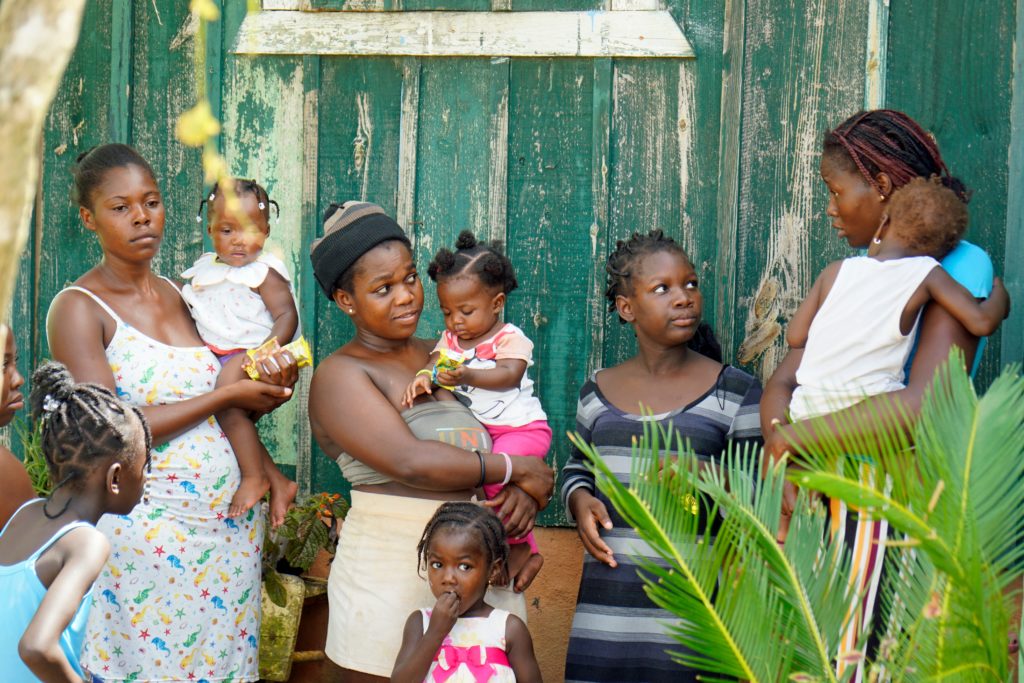
Apart from the Convention on the Rights of the Child that the government of Grenada adopted in 1990, the authorities have also signed the Child Bill, the Childcare and Adoption Bill, the Domestic Violence Bill, and the Juvenile Justice Bill. Unfortunately, there are no firm national frameworks for the state to punish and prosecute those breaking the laws. It seems that, “Grenada’s laws did not sufficiently reflect the provisions of the Convention” (UNHR, 2010).
The adoption of the Child Abuse Protocol has proven to be a huge success across the country. The Cabinet came up with clearly outlined guidelines that sought to help people identify and report cases of child exploitation. The government chose April as “Awareness and Prevention Month” to inspire community members to actively participate in solving the growing problem of child molestation. The pilot project was deemed successful, as there was an increased number of child abuse reports to the social service agencies (UNHR, 2010).
In 2011, the authorities officially prohibited corporal punishment in children’s homes and training centers. The Ministry agreed to criminally persecute those who offend the children’s right to protection and non-violence. A couple of years back, whipping and flogging of children was perfectly legal under the Criminal Code. Even though this is a big step for Grenada, the humanitarian organizations are still urging the government to “enact legislation prohibiting all forms of corporal punishment in all settings,” such as daycare, schools, and prisons (End Corporal Punishment, 2020).
Addressing the needs of children
Right to health
The health system in Grenada is of satisfactory quality for both adults and children and the government and foreign investors frequently step in to fund hospital construction and medication supplies. Thanks to the doctors’ efficiency and steady pace of improvements, AIDS patients can access appropriate medication which enables them to live a normal life. Consequently, the lack of communicable diseases and effective treatments ultimately resulted in a “general reduction in both infant and maternal mortality and led to increased life expectancy for Grenadians” (UNICEF, 2017).
According to research conducted in the Grand Anse Valley area in 1996, citizens of Grenada performed poorly in the survey that sought to assess their knowledge of mosquito-borne diseases. Just like in many other countries with similar temperatures, rainfall, and humidity, Grenada is not immune to vector-borne pandemics. Although many were familiar with the concept of dengue and malaria, people didn’t know how to take necessary precautions. The government is to educate the community on dangers as well as effective ways of protecting the most vulnerable ones from transmission (Panagos et al, 2005).
Right to education
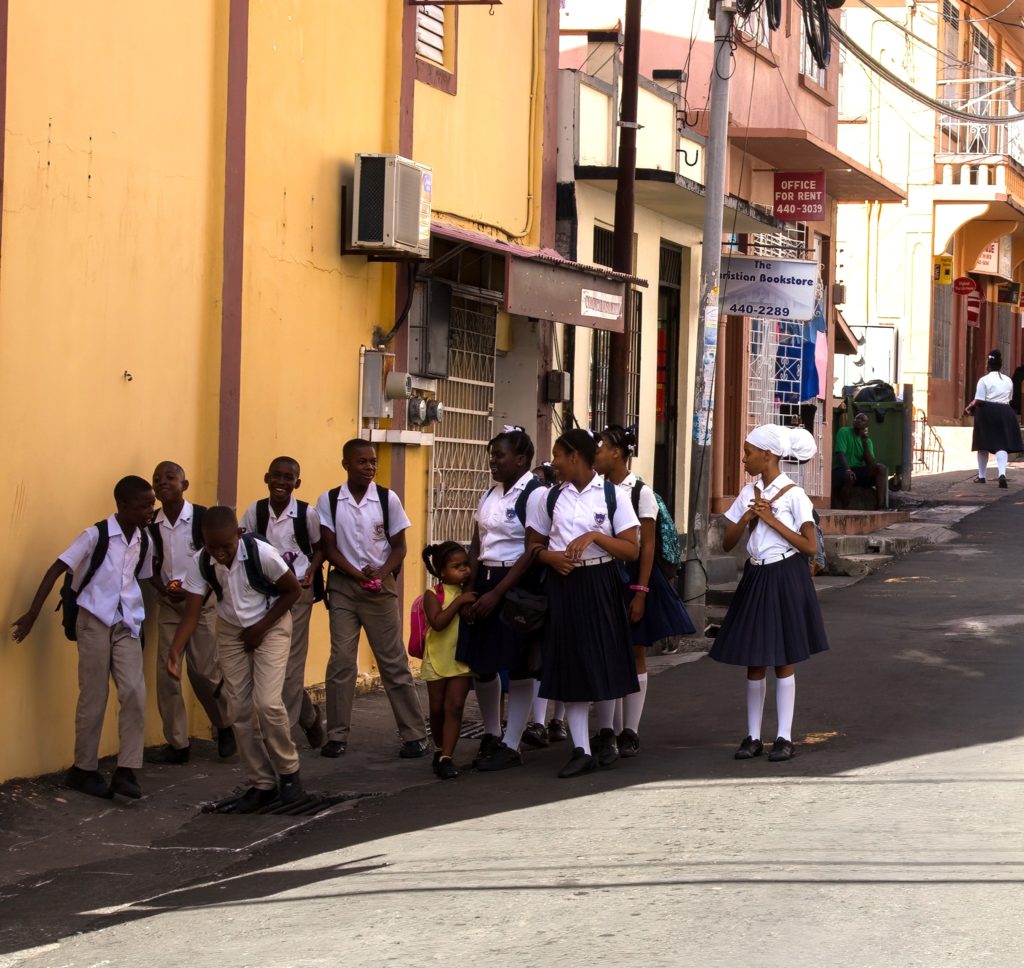
Devastating hurricanes and other natural disasters can in worst cases, shatter schools in a matter of minutes. In the aftermath of the storms, pupils tend to drop out of school in search of jobs. The reason for this is twofold: first, they can’t attend schools due to ruined infrastructure, and second, they are able to easily find jobs in the construction sector and financially help their families. Grenada spends millions of dollars on around 22,000 students enrolled in schools. The government is heavily investing in education as they are aware of “education attainment being strongly linked with economic gains and lower poverty rates” (Mateyka S, 2017).
Grenada is also fighting teenage pregnancy, although the numbers have been steadily declining in the last couple of years. This success can be attributed to the introduction of abortion pills. Unlike in other Caribbean countries, underage mothers in Grenada who gave birth while still going to school can finish their education by attending government-supported programs in the afternoon classes (UNHR, 2010). While girls are able to continue where they left off and attend lessons after delivering the baby, many young mothers opt out of school due to fears of being reprimanded.
The economy in Grenada mostly depends on external factors. The country is affected by a declining economy and high unemployment rates that result in insufficient capital flow. The country is creating opportunities for young students to venture into tourism, art, and similar fields to bridge the gap between academia and industry roles.
Most of the children will finish primary school, where they learn English and French, apart from other important subjects. Although Grenada has only two universities, one of them is highly regarded for being a revered medical institution attracting doctors from all over the world (Odin Land, n.d.).
Right to protection
In Grenada, children born out of wedlock are discriminated against by society and governmental institutions. However, according to the Universal Declaration of Human Rights (UDHR), all children, regardless of their status, have the right to protection. Although this includes those born out of marriage, the law is not firm and it lacks implementation.
Humanitarian organizations have been working with the authorities to set up the birth registration processes in order to support this cause. That way the government institutions enabled the children to realize their fundamental, as well as socio-economic rights (The Commonwealth, 2016).
“In 2011, the Government estimated that approximately 14,000 Grenadians were without registered names and that 9,063 of these were children under the age of 18.”
– UNICEF, 2017
However, on a positive note, the government launched an initiative the same year, making sure no child leaves the hospital without the presence of a father who would realize his child’s right to identity. The fathers are expected to use the universal birth registration form that is linked to an online database. The project turned out to be a success as more names are added to the register every year.
Risk factors -> Country’s specific challenges
Poverty
Having the highest poverty rate among the Eastern Caribbean countries, it doesn’t come as a surprise that “in 2016, 38% of people in Grenada were living in poverty” (UNICEF, 2021). According to the latest data, most of the households struggling economically are led by single mothers. Children who grow up lacking basic amenities are more likely to commit crimes, join a local gang, or drop out of school.
The 2020 pandemic worsened the situation and these numbers are only estimated to rise in the future. Families on the brink of poverty are particularly vulnerable to socioeconomic changes on any scale. Access to public schools or health institutions is, therefore, of paramount importance for low-income families. Ideally, teachers, social workers, and parents should work together to help children rise from poverty through education (UNICEF, 2021).
“In 2020 the World Bank estimated that 32% of Grenada’s residents live below the poverty line.”
– Lawerence A, 2020
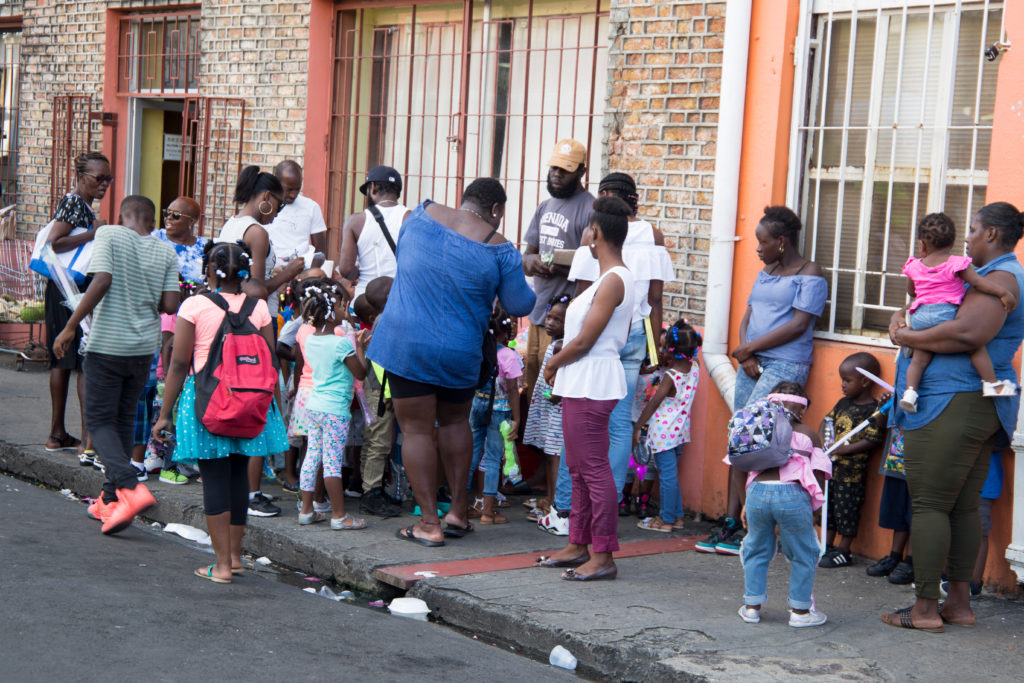
More than 13% of the entire population can’t make ends meet and most of these families reside in rural areas, with limited access to opportunities to find work. The population in the urban environments has better access to foreign aid, as well as spice and tourism markets that sustain the country. The poor economic situation has resulted in an increased number of teenage pregnancies, as well as gender-based violence and child and women abuse (Lawerence A, 2020).
Although the government is heavily investing in the education system, the youth seems to be disinterested in working in the rural sector as the wages are fairly low. The country has additionally been struggling with tropical storms that damage the plantation fields. Most of the farmers and fishermen who reside in villages are left with nothing after the tropical storms sweep over the island. However, progress has been reported in the way the community prepares for turbulent weather and takes precautions that might help alleviate post-storm flooding (Lawerence A, 2020).
Child exploitation
Children in Grenada are exposed to substantial sexual violence and exploitation. In 2019, activists organized one of many protests in the country to raise awareness of child abuse. They are fighting against the soft laws, that enable the perpetrators to be released by paying as little as $1500.
Also, “the maximum sentence for the charge of indecent assault is five years imprisonment” (Campbell C, 2019). The activists are asking for the government to strengthen the laws and punish the culprits thus protecting the children who are too young to stand up to criminals. The community is encouraged not to stay silent, as any child can become a victim of mistreatment (Campbell C, 2019).
Despite a significant part of the population being angry and frustrated, sexual assaults are on the rise, and the authorities are in a continuous process of revising the Criminal Code acts. Up until 2012, sexual abuse allegations didn’t include crimes against boys. The penalties were not as harsh and the judicial processes of legally condemning criminals lasted longer than they do today. According to the new amendments, the government also worked on imposing stricter rules for those who engaged in illicit sexual activities with underage children (UN Women, n.d.).
Children in Grenada are exposed to sexual abuse in places like schools, homes, or even police stations. Some of these children fall into the trap willfully to earn money to help their families. The authorities in Grenada emphasize not only the importance of registering these incidents but also “underline the importance of education regarding sexual abuse and recognizing signs of abuse” (Immigration and Refugee Board of Canada, 2005).
In 2006, the government launched a nationwide initiative that serves to focus on identifying the criminals, and victims, as well as protecting children from being exploited on the internet. The country has a legal responsibility towards the children to implement policies and programs that respond in the best interest of the child. Children should have access to trained social workers, psychologists, and other professionals who will help them address and overcome post-abuse vulnerabilities. The law should be frequently adjusted according to the proven efficiency and success in order to enhance the child protection systems (Sealv-Burke J, 2016).
Juvenile justice system
In 2005, society was outraged to hear of an incarceration case of two siblings. Two fourteen-year-olds were placed in prison for the lack of shelter provided by the social services. These children were abandoned by their parents, and using the justification of keeping them somewhere safe, the authorities directly violated their right to protection.
On top of the terrible management of the abandoned children, the government was criticized for not providing counseling services and placing the children under the care of professional caretakers. According to the Grenada Coalition for the Rights of the Child, “many of these difficulties have resulted from the lack of any established guidelines or clearly defined protocols” (Immigration and Refugee Board of Canada, 2005).
In most of the Caribbean countries, adolescents who were criminally charged don’t have access to rehabilitation services that involve counseling and after-care. Instead of getting therapy and reducing the chances of recidivism, these young offenders are left to themselves and are thus likely to commit the same crime again. The country is currently not able to deal with such cases effectively due to being understaffed and under-equipped. Sadly, children aged between sixteen and eighteen stay in prison with older inmates and often lack access to education (Sealv-Burke J, 2016).
“In the U.S. State Department human rights report, the most significant human rights abuses in Grenada were poor prison conditions due to overcrowding, and violence against women and children. ”
– Blandau R, 2017
Grenada has only one prison that accommodates more than double of its original capacity. This detention center is the only one of its kind, housing children as young as twelve, which is the legal criminal age in Grenada. On the bright side, more people are adamant about reporting abuse, which does result in more detainees but also sets the women and children free. The country has been working on establishing shelters for the victims of domestic or sexual violence (Blandau R, 2017).
Written by Lidija Misic
Internally proofread by Aditi Partha
Last edited on November 6, 2022
Bibliography:
Blandau Rachel, Human Rights Concerns in Grenada: Prisons and Discriminatory Laws (2017). Retrieved from Borgen Magazine at https://www.borgenmagazine.com/human-rights-concerns-in-grenada/, accessed on November 6, 2022.
Britter V.B. Eric, Grenada (2022). Retrieved from Britannica at https://www.britannica.com/place/Grenada, accessed on November 5, 2022.
Campbell Curlan, Grenada Empowerment Movement issues petition to strengthen laws against child sexual abuse (2019). Retrieved from NOW Grenada at https://nowgrenada.com/2019/10/grenada-empowerment-movement-issues-petition-to-strengthen-laws-against-child-sexual-abuse/, accessed on November 6, 2022.
Committee on Rights of Child examines report of Grenada (2010). Retrieved from UNHR at https://newsarchive.ohchr.org/EN/NewsEvents/Pages/DisplayNews.aspx?NewsID=10082&LangID=E, accessed on November 5, 2022.
Generation Unlimited – the well-being of young people in Grenada (2021). Retrieved from UNICEF at https://www.unicef.org/easterncaribbean/reports/generation-unlimited-well-being-young-people-grenada, accessed on November 6, 2022.
Grenada (n.d.). Retrived from UN Women at https://caribbean.unwomen.org/en/caribbean-gender-portal/caribbean-gbv-law-portal/gbv-country-resources/grenada, accessed on November 6, 2022.
Grenada prohibits corporal punishment in child care services and as a sentence for a crime (2020). Retrieved from End Corporal Punishment at https://endcorporalpunishment.org/grenada-prohibits-as-a-sentence-for-a-crime/, accessed on November 5, 2022.
Grenada: Protection available for victims of child abuse: availability of facilities and social services for abandoned children (2003-2005). Retrieved from the Immigration and Refugee Board of Canada at https://www.refworld.org/docid/45f147f220.html, accessed on November 6, 2022.
Grenada referendum and the protection of children (2016). Retrieved from The Commonwealth at https://thecommonwealth.org/news/grenada-referendum-and-protection-children, accessed on November 6, 2022.
How good is education in Grenada? (n.d.). Retrieved from Odin Land at https://odinland.vn/education-in-grenada/?lang=en, accessed on November 6, 2022.
Lawerence Abbie, Poverty in Grenada (2020). Retrived from The Borgen Project at https://borgenproject.org/tag/poverty-in-grenada/, accessed on November 6, 2022.
Mateyka Sylvia, Improving children’s education in Grenada (2017). Retrieved from The OPEC Fund for International Development at https://opecfund.org/news/improving-children-s-education-in-grenada, accessed on November 6, 2022.
Panagos et al, Dengue in Grenada (2005). Retrieved from National Library of Medicine at https://pubmed.ncbi.nlm.nih.gov/15969973/, accessed on November 6, 2022.
Situation Analysis of Children in Grenada (2017). Retrieved from UNICEF at https://www.unicef.org/easterncaribbean/reports/situation-analysis-children-grenada, accessed on November 6, 2022.
Sealv-Burke Jacqueline, OECS/UNICEF Assessment of the Child Justice System in Grenada (2016). Retrieved from UNICEF at https://www.unicef.org/easterncaribbean/reports/oecsunicef-country-assessment-child-protection-systems-grenada, accessed on November 6, 2022.
[1] This article by no means purports to give a full or representative account of children’s rights in Grenada; indeed, one of many challenges is the scant updated information on the children in Grenada, much of which is unreliable, not representative, outdated or simply non-existent.

